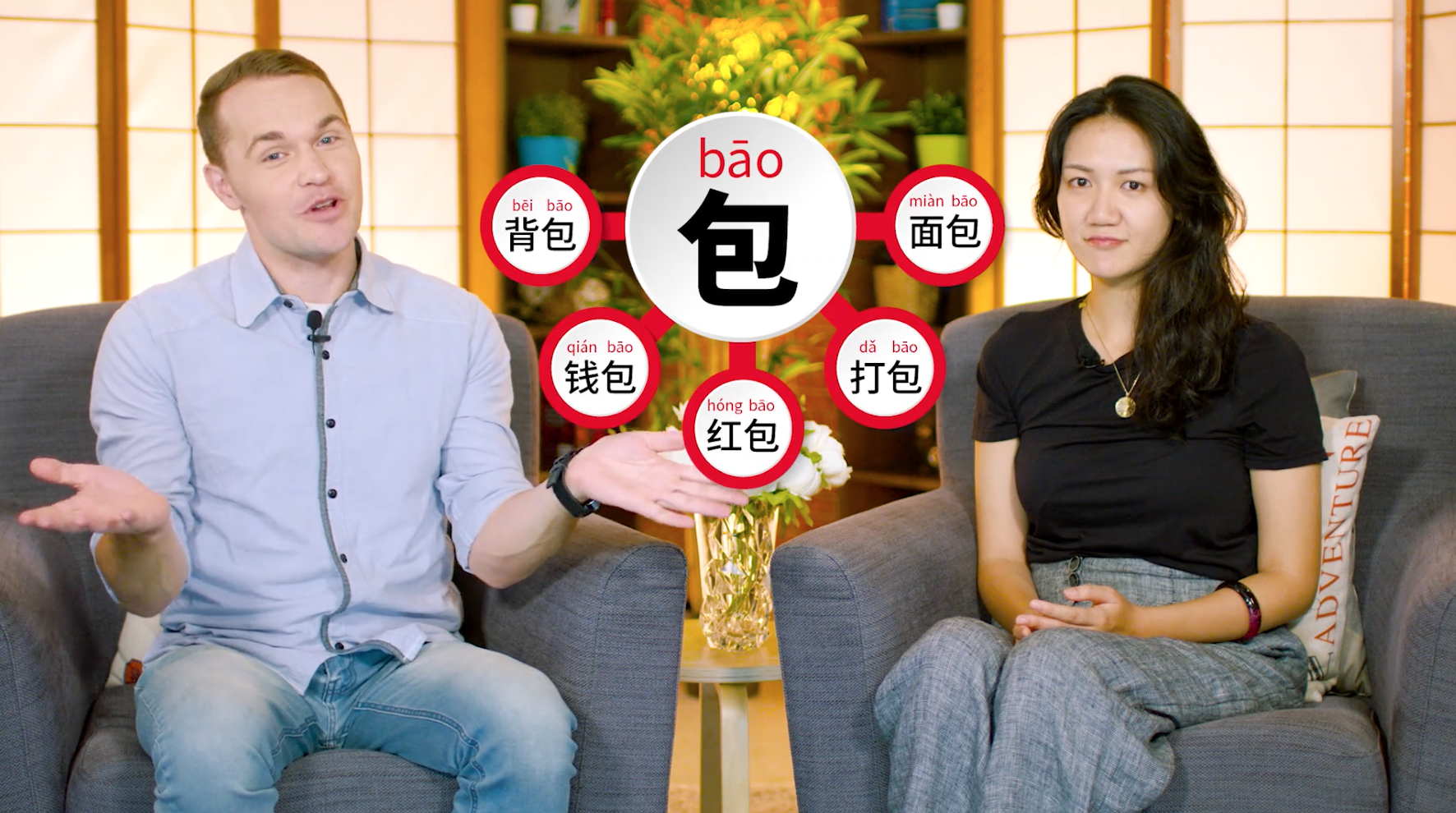Relevant Content
We'll always make sure you know exactly what the lesson is about. You
will easily understand whether it is relevant for you.
Tone change series #1 不 (bù)
Great Hosts
Here at ChinesePod, all our lessons are presented in an entertaining
manner by our great hosts. You'll find language learners, teachers,
and even professors sharing their insights, ideas, and teaching
methods in our video and audio lessons.
Brief Lesson Summaries
A brief introduction of the lesson will always tell you what this
lesson is about and what language level is the intended target. If
you're interested in the subject, but might not be able to understand
it in full, fear not; we have transcripts of lesson dialogues
vocabulary so you can follow along.
IN THIS LESSON
ID: 4195 Newbie
In this series, we tackle the most common question in every newbie's mind: "What's with the tone changes?"
Along the way, you'll learn the tone change rules for 不, 一, two third tones, and three third tones. Practice and familiarize yourselves with the sounds, and you'll be a tone master in no time. Today, let's start with 不(bù).
Generally we do not see tone change rules applied in written texts, i.e. we do not see the change of tone mark reflected in written pinyin. Precisely because of this, tone change rules are confusing and burdensome to beginning learners. To help our users to master tone change rules more quickly, we have deliberately marked the changes so that they are more easily recognized and more discernible to learners. So join us in this newly designed tone change series, and let us know your thoughts!
Sat May 18 2019 | Joy, Joe
Awesome Materials
Our lessons contain natural communication in Chinese
in video and audio format. We have have lessons focused on video or a
podcast format and our lessons have transcripts of Lesson Dialogues,
Important Vocabulary, Expanded Materials for a deep dive into the
lesson topic and Exercises focused on testing your retention.
Detailed Vocabulary
Each lesson has it's unique vocabulary and will provide you with
definitions and recordings so you can practice the pronunciation. You
will also be able to grasp the core material of a lesson at a glance.
Here we're showing you the Simplified Chinese version.
| SIMPLIFIED | PINYIN | ENGLISH | |
|---|---|---|---|
| 能 | néng | can; to be able to; might possibly | |
| 好 | hǎo | ok; alright | |
| 对 | duì | correct | |
| 用 | yòng | to use |
不能
bù néng
can not
不好
bù hǎo
not good
不错
bù cuò
(spoken as bú cuò) not bad
不对
bù duì
(spoken as bú duì) wrong
Natural Dialogues
Each lesson is centered around a natural dialogue with key vocabulary
directly prepared and translated for your use. You can also
listen to each sentence as an individual recording to
improve your listening and comprehension skills.
Try It For Free
ChinesePod is 100% Free to Try. Create an account
today and get started!
Sign Up
Please enter a valid email.
- or -
Sign up with

